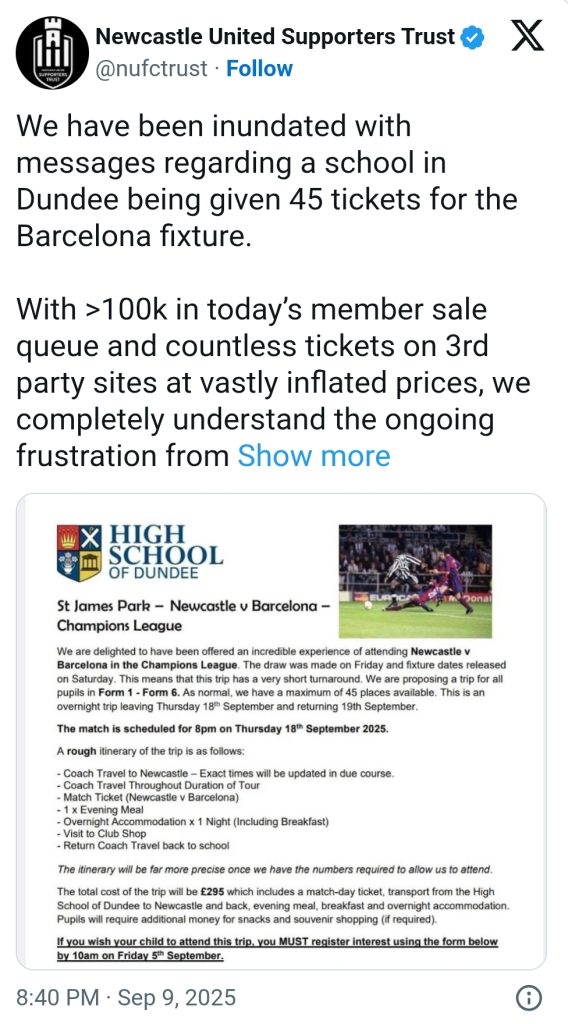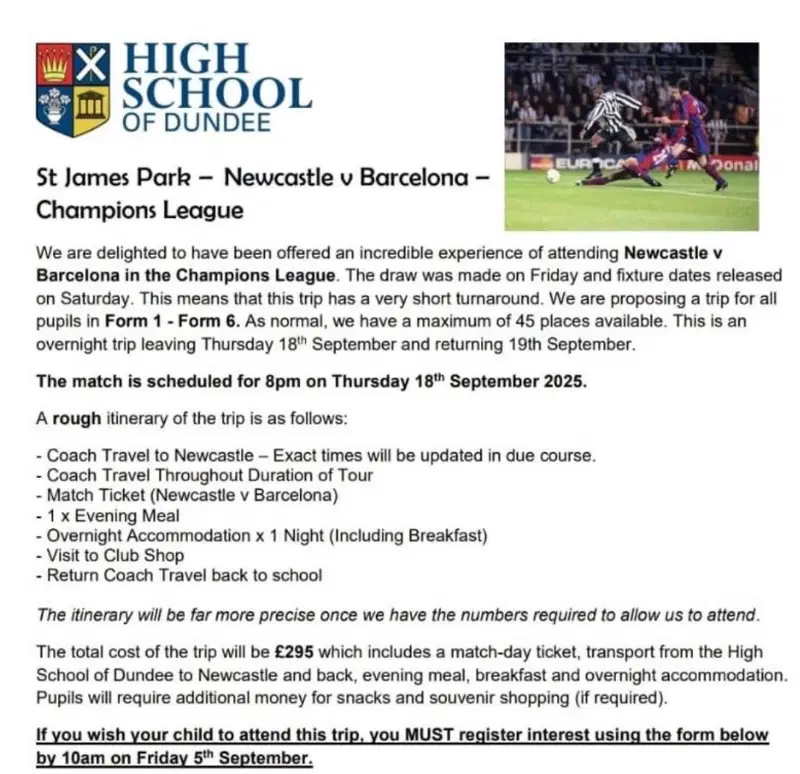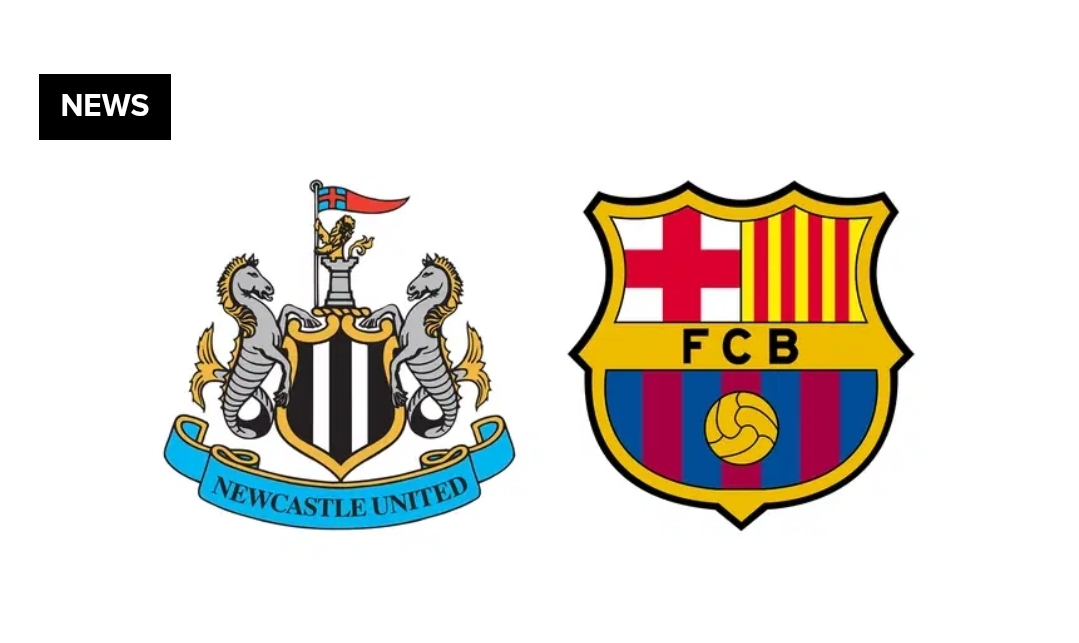The excitement surrounding a marquee Champions League match is a special feeling for any football fan, but for Newcastle United supporters, the process of securing a ticket for the upcoming game against Barcelona has become a source of immense frustration and a feeling of deep unfairness.
The club’s membership system, which requires fans to pay an annual fee for the chance to enter a ticket ballot or queue, saw over 100,000 people competing for a limited number of seats.
When the final tickets were snapped up in minutes this past Tuesday, leaving the vast majority disappointed, the system’s flaws were already apparent.
However, the real anger emerged later that evening when it was revealed that 45 highly coveted tickets had been allocated not to loyal Geordies, but to the High School of Dundee, a private institution where annual fees can exceed £20,000 per pupil.

This discovery has left fans in a state of disbelief. The irony is palpable: local children whose families pay £20 for a junior membership to support their team are missing out, while students from a privileged background in Scotland, with no inherent connection to Newcastle United, are given a coachload of tickets for what is arguably the biggest home game of the season.
For the thousands of members who invest emotionally and financially into the club year after year, this feels like a profound betrayal, a clear case of their loyalty being overlooked in favor of a corporate or personal connection.
Sadly, this is not an isolated incident. Regular attendees at St. James’ Park will tell you that it’s a common sight to see large groups in the stands, often in family sections, who clearly are not Newcastle supporters.
You can tell by their reaction or lack thereof when the team scores a goal. In some cases, when playing certain rivals, these neutrals have even been seen celebrating opposition goals.
This points to a systemic issue where blocks of tickets are being diverted away from the genuine fanbase.

A look back at the final Champions League group game against AC Milan in December 2023 reveals a strikingly similar pattern.
On that occasion, over 50 tickets were given to the same High School of Dundee. Their trip, as documented on the school’s own website, included a coaching session at the academy of rival club Sunderland before they attended the match at St. James’ Park.
For Newcastle fans, who desperately needed a win to advance, the sight of a large group of neutral teenagers enjoying a day out while they themselves were locked out was salt in the wound.
This pattern raises two deeply troubling questions for the fanbase. First, is this a revenue-generating exercise?
Are these tickets part of expensive hospitality packages sold to schools or companies for a significant profit, bypassing the members who would pay standard price?
Second, is there a personal connection at play? Does a senior club official or director have a link to this specific school, perhaps as an alumnus or a friend of the administration, that explains why it repeatedly benefits from these allocations?
The central issue is a complete lack of transparency from the club. Supporters are kept in the dark about the most basic details: how many members exist, how many apply for each ballot, and crucially, how many tickets are actually made available to them versus how many are allocated to sponsors, partners, and other groups.
Other top clubs, like Arsenal, provide this data openly. Why doesn’t Newcastle United?
Coupled with the ongoing problem of tickets appearing on third-party resale sites at inflated prices, the situation creates a perception that the club’s ownership is not prioritizing its most valuable asset: its loyal, passionate, and often heartbroken supporters.
For a fanbase that has supported the club through thin and thinner, this feels like a needless and painful disconnect.

